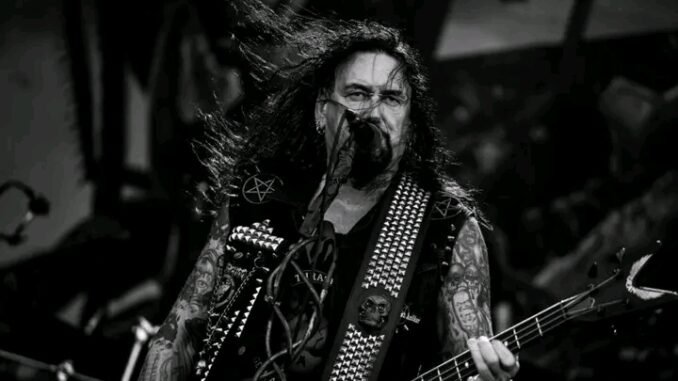
Schmier: The Voice and Soul of Destruction — A Testament to His Crucial Role in the Band’s Legacy**
In the world of thrash metal, few bands have left as indelible a mark as Destruction. Formed in 1982 in Germany, Destruction has been a cornerstone of the genre, known for their relentless speed, aggressive riffs, and uncompromising attitude. Central to their enduring legacy is the band’s charismatic frontman and bassist, Schmier (real name Marcel Schirmer), whose voice, songwriting, and presence have often been regarded as the heartbeat of the group.
**The Early Years and the Rise to Prominence**
Schmier joined Destruction early in their career, bringing a distinctive vocal style and songwriting sensibility that contributed significantly to their early albums, such as *Infernal Overkill* (1985) and *Eternal Devastation* (1986). His energetic performances and lyrical focus on themes like war, chaos, and rebellion resonated with thrash metal fans worldwide, elevating Destruction to the top tier of the scene.
Throughout the late 1980s, Destruction’s reputation grew, with Schmier at the forefront, commanding stages and inspiring a legion of fans. His role was not limited to vocals; as a bassist and a creative force, Schmier shaped the band’s sound and message, making him an indispensable figure in their success.
**The 1990s: A Turbulent Period and the Impact of Schmier’s Absence**
The 1990s proved to be a tumultuous period for Destruction. Internal disagreements, lineup changes, and shifting musical landscapes challenged the band’s stability. Notably, Schmier departed from Destruction in 1989, leading to a significant transformation in their sound and identity. During his absence, the band experimented with different styles, and their music took on a more groove-oriented and less aggressive tone. Albums such as *Cracked Brain* (1990) and *The Least Successful Human Cannonball* (1998) reflected these changes but failed to capture the same energy and authenticity that Schmier’s presence had brought.
The period without Schmier is often regarded as a low point in Destruction’s history, with many fans and critics perceiving the band as “a shadow of their former selves.” The chemistry, the raw energy, and the lyrical sharpness that Schmier infused into their music seemed missing. This era exemplifies how vital he was to the band’s core identity and success.
**The Return of Schmier and Resurgence**
In 2000, Schmier rejoined Destruction, sparking a renaissance for the band. His return revitalized their sound, blending their classic thrash roots with modern influences. Albums like *The Antichrist* (2001), *The Curse of the Antichrist* (2005), and *Day of Reckoning* (2020) showcase a band that, with Schmier at the helm, continues to produce powerful, uncompromising thrash metal.
Fans and critics alike have praised Schmier’s leadership and musical vision, emphasizing how his voice and songwriting remain central to the band’s identity. His presence on stage exudes confidence and charisma, reinforcing his role as the frontman who embodies the spirit of Destruction.
**A Testament to Influence and Legacy**
Schmier’s story with Destruction underscores an essential truth in the music world: the significance of authentic leadership and creative vision. His influence extends beyond his vocals; he is the band’s moral compass, creative driver, and symbol of resilience. The contrast between the band’s trajectory during his absence and his return highlights the profound impact one individual can have on a group’s direction and success.
Moreover, Schmier’s dedication to thrash metal and his unwavering commitment to the band have inspired countless bands and fans. His perseverance in the face of challenges and his ability to reignite the band’s spark serve as a testament to his importance not only within Destruction but within the wider metal community.
**Looking Ahead**
Today, Destruction continues to tour and record, with Schmier firmly back as their leader. Their recent works demonstrate that the band remains relevant and aggressive, staying true to their roots while embracing new influences. Fans worldwide recognize that Schmier’s voice and presence are irreplaceable, and his contribution to the band’s legacy is undeniable.
**In Conclusion**
The story of Destruction’s rise, fall, and resurgence is intrinsically linked to Schmier’s role as the voice, soul, and frontman of the band. His absence during the 90s underscored how critical he is to their success, serving as a living proof of his influence. Today, Schmier’s legacy endures, inspiring new generations of thrash metal enthusiasts and cementing his place as one of the genre’s most influential figures.
Leave a Reply